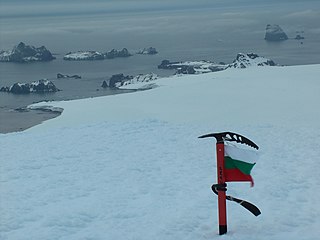Related Research Articles

Edward Blyth was an English zoologist who worked for most of his life in India as a curator of zoology at the Royal Asiatic Society of Bengal in Calcutta.

Arthur Thistlewood was an English radical activist and conspirator in the Cato Street Conspiracy. He planned to murder the cabinet, but there was a spy and he was apprehended with 12 other conspirators. He killed a policeman during the raid. He was executed for treason.

William Smith was an English captain born in Blyth, Northumberland, who discovered the South Shetland Islands, an archipelago off the Graham Land in Antarctica. His discovery was the first ever made south of 60° south latitude, in the present Antarctic Treaty area.
Edmund Frederick Robertson is a professor emeritus of pure mathematics at the University of St Andrews.
William Mellish (1764–1838) was an English Tory politician and banker.
John Blyth, Blithe or Blythe may refer to:

George Watson-Taylor, of Saul's River, Jamaica, was a plantation owner and Member of Parliament (MP) at Westminster. In 1810 he married into the family of the planter Sir John Taylor, 1st Baronet, in time adding the Taylor surname to his own, and becoming the richest planter on Jamaica. He bought a house in Cavendish Square, London, and Erlestoke Park, near Devizes, Wiltshire. As MP for a number of constituencies, where he was brought in without contests, he supported the Tory administration, and campaigned for the retention of slavery.
England was built at Chepstow, Wales in 1813. She made three voyages transporting convicts from England to Australia. On the first she was under charter to the British East India Company (EIC) and, after delivering her convicts, sailed to Canton where she picked up a cargo for the EIC. She foundered in 1843 in the Channel while on a voyage to Sierra Leone.

The Jamaica Station was a formation or command of the United Kingdom's Royal Navy stationed at Port Royal in Jamaica from 1655 to 1830.
Cornwall was launched in 1794 as a West Indiaman. In a little more than three years later she had left on the first of three whaling voyages to the Southern Whale Fishery. On her first whaling voyage she captured a Spanish ship and fought off a French privateer. After her third whaling voyage Cornwall returned to the West Indies trade. Around 1817 new owners sent her to India where a Parsi merchant purchased her. She traded in the Persian Gulf and the Indian Ocean, and also participated as a transport in a naval expedition to the Persian Gulf. She was last listed in 1824.
Jamaica Dockyard also known as Port Royal Dockyard was a British Royal Navy Dockyard located at Port Royal, Jamaica. It was established 1675 and closed in 1905. The dockyard was initially administered by the Navy Board then later the Board of Admiralty.

John Buddle Blyth was a Jamaican-born chemist who was the first professor of chemistry at Queen's College Cork in Ireland. With August Wilhelm von Hofmann, he was the first to report photopolymerisation which they observed when styrene became metastyrol after exposure to sunlight.

Mesopotamia was a sugar plantation in Westmoreland Parish, Jamaica, north of Savanna-la-Mar on the Cabaritta River. It was adjacent to the Friendship and Greenwich estate.
John Holmes (1763-1836) was a planter and slave-owner in Jamaica. He was elected to the House of Assembly of Jamaica in 1820.
John Rawleigh Jackson was a planter and slave-owner in Jamaica. He was elected to the House of Assembly of Jamaica in 1820 representing Port Royal where he was also the chief magistrate in 1831.
John Lunan was a planter and magistrate in Jamaica. He was elected to the House of Assembly of Jamaica in 1820.
John Mais (1778-1853) was a planter and slave-owner in Jamaica. He was elected to the House of Assembly of Jamaica in 1820 for the parish of Saint Andrew.
William Shand was elected to the House of Assembly of Jamaica in 1820 for the parish of Saint John.
John Williams was a planter and slave-owner in Jamaica. He owned the Cool Spring Plantation in Clarendon Parish and had an interest in Provost's Rock River plantation. He had family connections to the Isle of Wight in England. He was elected to the House of Assembly of Jamaica in 1820 for the parish of Clarendon.
Lady Ridley was launched in 1813 at Blyth as a West Indiaman. She transported convicts in 1821 to Van Diemen's Land. She also sailed to India under a license from the British East India Company (EIC). She was wrecked on 11 November 1831.
References
- 1 2 John Blyth. Legacies of British Slave-ownership, University College London. Retrieved 12 January 2019.
- ↑ Hakewill, James. (1825) A Picturesque Tour of the Island of Jamaica, From Drawings Made in the Years 1820 and 1821. London: Hurst and Robinson & E. Lloyd. p. 13.